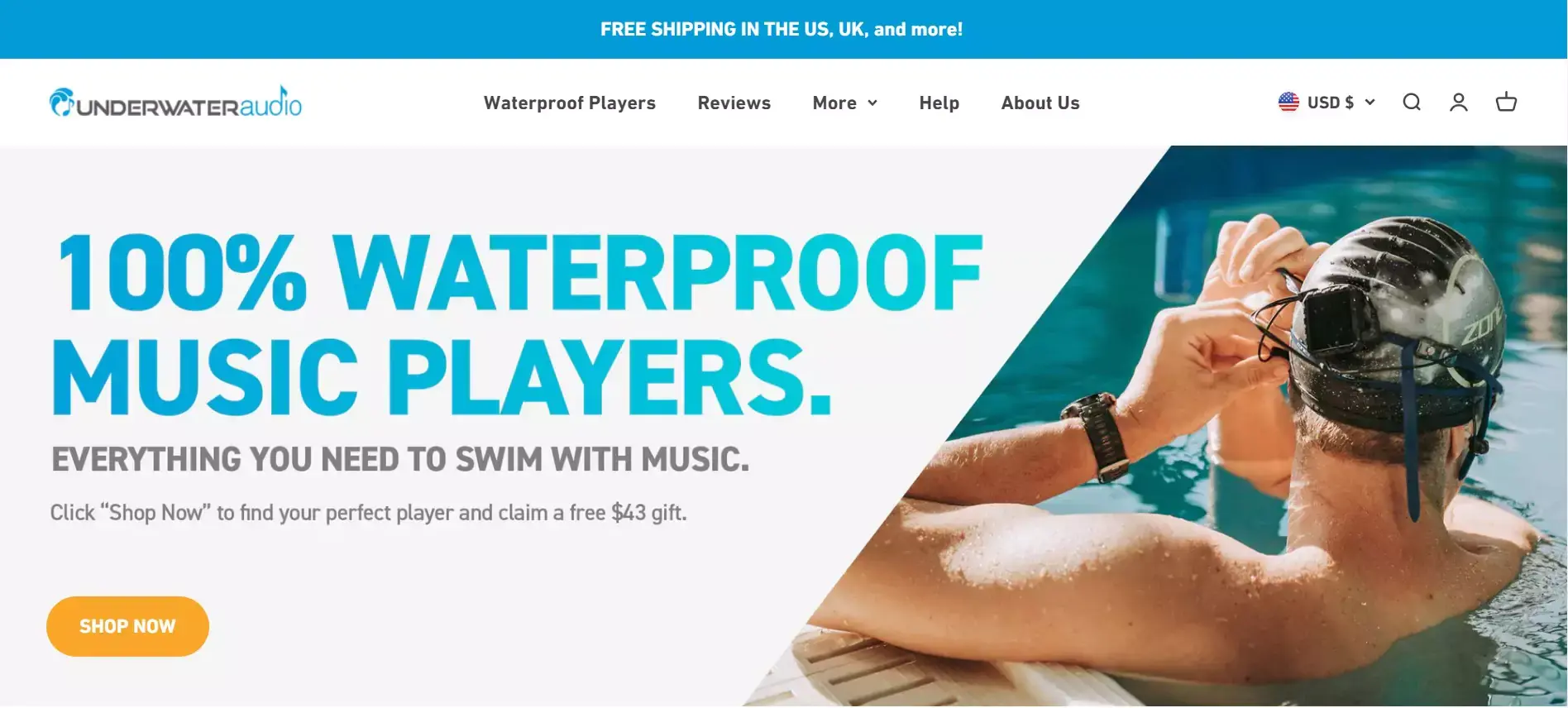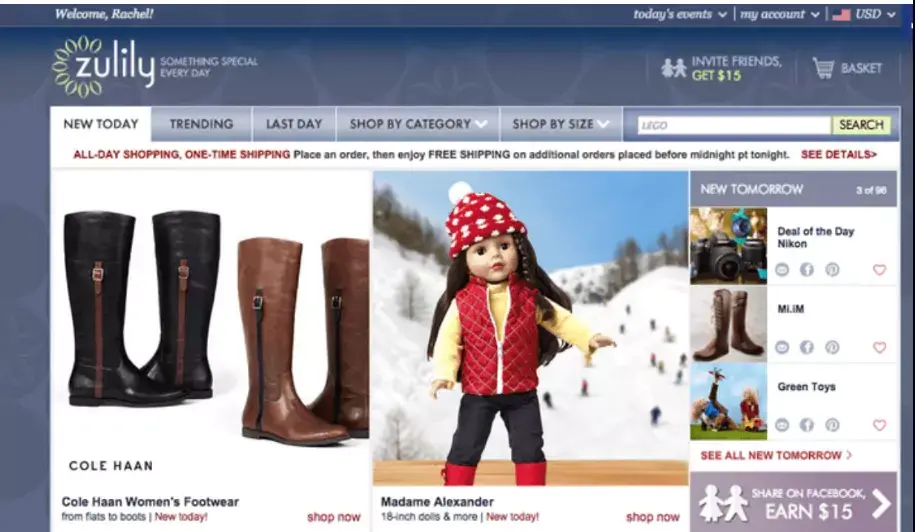Keynote speaker, Maarten Schafer, once wrote, “You need an ‘Online Image’, otherwise not having an ‘Online Image’ will be your image.” This statement carries a ton of weight in the context of business reputation management.
Online business reputation and customer loyalty go together like a tickle and smile. Given the fact that the ecommerce industry thrives on comments, likes, shares, reviews, and other forms of digital engagement to build its reputation, businesses, both small and large, need to address and adopt ecommerce reputation management as a vital virtual function of the business.
In this article, we give you a detailed overview of online business reputation management, why reputation is important in a business, and the 10 best ways to safeguard your ecommerce business reputation.
Why is reputation important in a business?
In 2022, people spent an average of 147 minutes each day on social media globally, making it crucial for ecommerce brands to have an online reputation management process. Ignoring even one negative review can escalate into a major issue for a company. With 81% of consumers researching products online before making a purchase and 32% of customers leaving a brand on encountering a bad experience, managing business reputation is of utmost importance.
Negative reviews can easily deter potential buyers. On the other hand, a positive online reputation can increase sales by building consumer trust and confidence. As positive brand mentions increase, so do the chances of closing a sale. Besides, receiving positive news or opinions, especially from reputable sources, can go viral and attract more web traffic.
Using an online reputation management tool, you can spot and capitalize on top news outlets that praise your service, leading to sudden spikes in organic traffic. Displaying these positive reviews on your online channels can further boost your reputation and lead to increased conversion.
Understanding online business reputation management
By definition, online reputation management for business is the practice of overseeing how customers view your business online and taking appropriate measures to enhance your brand’s online image. Typically, reputation management revolves around keeping tabs on and safeguarding your brand’s online reputation, which includes reviews, social media, and Google. By doing this, you’re essentially creating and upholding a positive brand image that catapults a customer’s purchasing decision. Having said that, for almost all businesses, establishing a favorable brand image begins with their online presence. Essentially, social media and online review platforms largely determine your reputation. Nonetheless, monitoring your ecommerce brand reputation can seem overwhelming, especially given the vast amount of information that is beyond your control.
Measuring online business reputation
For the most part, the reputation of your ecommerce business can be measured by calculating a business reputation score. A reputation score is similar to a credit score. It assesses a brand’s current standing by analyzing its positive, negative, and neutral actions, interactions, and reactions among stakeholders. Factors that can influence a reputation score include online reviews and ratings, search impressions, negative online content visibility, and online listing accuracy.
So, what does one consider a good online business reputation score?
Simply put, a reputation score is a number that brands use to gauge the strength of their reputation. A score of over 600 is considered “good,” while a score over 850 is “top-notch.” Industry-standard is around 525, and factors like online reviews and search impressions are included in the scoring model.
10 best ways to protect your ecommerce business reputation
According to a recent statistical report, 81% of customers feel it’s important for them to trust a particular brand or business to shop from them online. Another study reveals that customers literally take just 0.05 seconds to arrive at a judgment about your ecommerce business website.
So, while you may have built an attractive reputation for your online business, it’s important to focus on business reputation monitoring as a constant and continuous process. Here are the 10 best ways to cushion your online business reputation against external factors that could work against your brand image.
1) Exceptional customer service does the trick
A recent survey highlights that more than 50% of adult consumers in the US believe it’s “important” or “absolutely essential” for ecommerce websites to offer a toll-free, real-time customer service agent who will tend to shoppers’queries online.
Let’s take Torrid as an example.
best-ways-to-protect-ecommerce-business-reputation-provide-customer-support-like-torrid
Torrid is a women’s fashion brand catering to sizes 10 to 30. With over 600 physical stores and an ecommerce platform, Torrid sells a range of products including apparel, accessories, and beauty items. Torrid’s priority is to attract and retain loyal customers by providing an exceptional online shopping experience. They have created a search engine that simplifies the process of finding the desired clothing items to meet customer requirements. Through thorough research of customer search patterns, they have tailored the search results to match customer preferences.
2) Continuous monitoring is the secret
Customer reviews provide companies with insight into how their customers perceive them and their experiences. However, unlike direct customer feedback, online reviews are publicly available and accessible to competitors and prospective customers. Reviews are instrumental in building brand credibility and awareness by creating trust with potential customers. Positive reviews can have a significant positive impact, while negative reviews can be detrimental to a business’s online reputation.
Here’s an example of how Timberland, an American manufacturer and retailer of outdoor footwear, upgraded its online reputation to boost sales.
best-ways-to-protect-ecommerce-business-reputation-continuous-monitoring-like-timberland
Timberland’s former Brand President, Stewart Whitney, noted that targeting multiple audiences with various messages increases the likelihood of misinterpretation. Unfortunately, the company was initially unaware that simply appealing to shoe lovers wasn’t enough.
After realizing their lack of clear brand identity and ineffective marketing, Timberland sought customer feedback and partnered with VF Corp to survey 18,000 customers across eight countries. By implementing customer insights, Timberland added a product review section to track performance and analyze ratings, images, and videos.
3) Flexible returns and refund policies are a win-win
Presenting your customers with an honest and transparent returns policy can prevent online negativity from coming your way and preserve the reputation of your brand. The key to achieving this is to communicate the policy to your customers in a timely and clear fashion. Offering stress-free returns or a money-back guarantee encourages customers to shop from your e-commerce site more often and helps demonstrate your commitment to product quality and customer satisfaction.
To build and protect their ecommerce business reputation, here’s what Warby Parker did:
best-ways-to-protect-ecommerce-business-reputation-offer-free-returns-like-warby-parker
In 2008, an MBA student named Neil Blumenthal suggested starting an online eyewear business to three friends due to the high cost of eyewear and Luxottica’s dominant position in the market. Launched in 2010, Warby Parker designs frames, and source materials, and collaborates directly with manufacturers, offering free try-ons, shipping, and a lenient return policy.
4) Living up to customer expectations keeps you on top
To safeguard your online business reputation, it is essential to manage customer expectations by communicating clearly and often. To prevent misunderstandings and disappointment, ensure that product offerings and delivery times are plainly stated. By staying transparent and keeping customers informed, you can establish trust and reduce the likelihood of negative reviews.
Let’s take Edible Arrangements for instance:
best-ways-to-protect-ecommerce-business-reputation-deliver-on-customer-expectations-like-edible-arrangements
Despite having 1,200 stores in 11 markets, Edible Arrangements receives most of their orders online. Their email marketing strategy is crucial to generating repeat business and promoting customer engagement, loyalty, and revenue. A visually appealing website, featuring attractive photography, is also important for attracting potential customers. They highlight their options for same-day delivery and emphasize that there are no extra fees for rushed delivery.
5) Nurturing positive customer relationships make you look good
One of the most successful ways of boosting customer engagement and inviting positive feedback about your brand is to run strong social media and email campaigns. This helps you foster friendly and everlasting relationships with your customers. Thanks to open lines of communication on channels most preferred by your customers, you can address customer issues or complaints before they escalate and harm your ecommerce reputation.
Here’s how fashion brand MVMT does it:
best-ways-to-protect-ecommerce-business-reputation-build-relationships-like-mvmt
MVMT is a fashion eCommerce business founded by Jake Kassan and Kramer LaPlante and aimed at disrupting the overpriced and outdated models of the fashion industry. They launched a successful crowdfunding campaign and have since built a community of 1.5 million MVMT owners by offering stylish, minimalist watches at fair prices.
MVMT uses social media extensively to grow its community, with over 5 million followers across various platforms. They design their watches and accessories in-house at their Los Angeles headquarters, delivering premium, on-trend products with a two-year guarantee. Overall, MVMT is known for its affordable yet high-quality products and its innovative approach to disrupting the traditional fashion industry.
6) Ensuring product quality is the key
It’s a given that customers buy premium to top-quality products simply because they are purposeful and worth the expenditure. So, no matter what else you do to keep your customers happy, you must first ensure that your products meet high standards of quality. To keep up the reputation of your online business, assess the quality of your products on a regular basis and make any necessary improvements to curb negative reviews and customer complaints.
Here’s an example of how Underwater Audio protects its online reputation:
best-ways-to-protect-ecommerce-business-reputation-give-product-quality-like-underwater-audio
Underwater Audio offers a selection of waterproof technology and related products to individuals seeking to enhance their water-based activities. Their product lineup includes waterproof music players and headphones, which were initially created to address the absence of available technology that hindered swimmers from keeping up with other athletes. In 2011, Todd Walker, the founder, devised a new method for converting the iPod Shuffle® into a fully submersible swimming companion, which prompted him to enlist his son, Scott, and establish Underwater Audio.
Over the past ten years, the company has improved its products to keep up with the changes in audio technology. Customers can now purchase waterproof tablets, MP3 players, and iPod Shuffles, as well as the Swimbuds line of waterproof headphones.
7) Safety first
An online business is only credible when it can safeguard its ecommerce site against potential security breaches. To make your site foolproof, make sure that it is both secure and user-friendly. This can be achieved by implementing robust security protocols and ensuring that the website is easily accessible and easy to navigate, thus creating a positive online experience for customers. Investing in website security measures is a wise decision to build trust and prevent any hacking or security threats.
Here’s an instance wherein Zulily, an online clothing store, shut down because of poor user experience:
best-ways-to-protect-ecommerce-business-reputation-give-safety-first-like-zulily
Zulily’s decline in popularity can be attributed to its poor marketing and user-attention strategies. One notable issue was the requirement for new visitors to provide their email addresses before accessing the search engine and shopping databases. While this marketing tactic initially resulted in record success with new subscribers, it violated basic marketing principles and led to a decline in sales.
The front-page email requests, a lot of merchandise, and flash sales invitations also discouraged potential customers from signing up and led to a decrease in revenue. Furthermore, while Zulily sometimes offered brand names at low prices, customers experienced longer-than-expected delivery times, resulting in poor reviews.
These inadequate marketing strategies led to a decrease in new customers and a lack of loyalty among registered users, ultimately affecting the financial stability of the company.
8) Collecting zero-party customer data is a good trend to follow
The best way to understand your customer’s purchasing journey is to analyze their data and gather personal information. Several ecommerce brands do this but some smart ones collect zero-party data. This is nothing but a strategy wherein your customers freely and willingly key in their information. This way, when their personal preferences or details show up on your ecommerce site, it doesn’t alarm your customers. It’s a fact that customers don’t like to be marketed to using personal information they never provided to the brand themselves. Zero-party data helps online businesses understand customer behavior and improve customer experience simultaneously.
Let’s look at how Jones Road Beauty does it:
ways-to-protect-ecommerce-business-reputation-collect-zero-party-data-like-jones-road-beauty
Buying makeup and specific cosmetic products online is difficult. Identifying the right shade and texture to match your skin is often a challenge. To help shoppers make the right decision, folks at Jones Road Beauty request their customers to participate in 3 different quizzes that will help them identify the shade of blush or lipstick best suited for their skin type or skin tone. The information collected via the quizzes is exactly what we call zero-party data and the customers feel safe when communicating with the brand in this manner. If your online business can do this, you will climb the popularity ladder in no time.
Continue reading: How to Master Zero-Party Data to Wow your Customers
9) Maintaining transparency takes you places
One of the most important ways for an ecommerce company to gain popularity and an enviable reputation is to be completely transparent and honest with its customers. If you’re looking to be the top ecommerce site on your customer list, you need to be open and expressive about your business models, practices, and ethos. This will not only help build a positive relationship with your customers, but it will also add value to your products and services at a premium level.
10) Revamping reputation management strategies is a rep saver
As discussed earlier, online business reputation management is all about monitoring reviews, checking your social media reputation, offering excellent customer service, and staying ahead of the competition. Having said that, a well-reputed online business is one that stays up-to-date with current trends. A strong and positive online reputation comes from consistently revisiting current ecommerce reputation management strategies to enable better customer engagement, customer loyalty, and relationship building.
For instance, here’s a little bit about how Lume Cube keeps changing it up!
ways-to-protect-ecommerce-business-reputation-do-reputation-management-like-lume-cube
From email marketing and SMS marketing to giveaways and subscriptions, this online DTC brand does it all. This company crafts and delivers portable lighting equipment for social media influencers. Needless to say, Lume Cube encourages its customers to fill their social media pages with their pictures wherein they feature Lume Cube products as well. This helps the brand don and flaunt an amazing social media strategy with the best user-generated content any brand could possibly ask for. Additionally, their products are up for sale on social commerce platforms as well. This enables customers to buy Lume Cube products on social media without leaving the channels they were on.
The Final Takeaway
The pre-internet era was vastly different from today in terms of the extensive amount of publicly available information about your brand. Unfortunately, once something is posted online, it generally remains accessible forever. It is therefore crucial to keep tabs on your online reputation and take necessary actions to mitigate any unfavorable comments about you or your business.
You may also like
Essential resources for your success

























